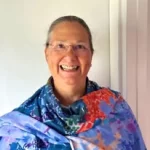–
I’ve been getting phone calls this week about homeschooling high school, and I’d like to reiterate that there are many completely different paths to success. We homeschooled originally so we could customize education to our children. High school is a time to tailor offerings even more diligently to the specific needs of our unique pupils than ever before. It is not a time to buckle to the “system” and start playing the “game.”
There are exceptions to everything. I would like to see kids go on to higher education, and I think most college-bound homeschoolers need to take as many assessment tests (SAT, ACT, SATII’s) as possible to verify for admissions committees the quality of work they have done. I would also hope homeschoolers take the standard four years to complete high school, and get on out in the world instead of staying home longer. But I also know successful young homeschoolers who have shirked these obvious, generally accepted guidelines without penalty.
In our homeschooling community we have a focused young man that has recently been accepted for early admission to Harvard. He took (and did well on) 10 AP classes, became certified to be an AP teacher of homeschoolers himself, and is a competitive ballroom dancer. All this was carefully choreographed to end in the result of him going to Harvard. I’m proud of his tenacity in pursuing a goal successfully, and sent his mother a hearty congratulations letter on a job well done.
But I’m equally –and often more profoundly– proud of countless other kids who follow paths authentic for them that have nothing to do with how elite the school is that they get into. Authenticity is impressive wherever I see it, and I see that potential among homeschoolers more than any other place. For me, the authenticity of the path determines long term success more than any ability to jump through hoops. Hoop jumping is not intrinsically satisfying, and a school being a “right fit” is much more important than its status.
I have three very different children, all independently minded. Early on in our homeschooling journey it became clear that a “one size fits all” approach to education just didn’t work. Initially, when I bought curriculum, I thought all three would use it. Wrong! While there were some overlaps, customization became the key. It also made me realize what a hard row the public schools try to hoe. Since my three from the same background are each so different, how could a classroom teacher of 25 approximate what is right for each child?
Plus, high school is a time of puberty and uncertainty for many kids. They don’t aways agree to do what you know is best for them. Homeschooling parents can inculcate values and habits from a young age, but by high school they must end up respecting and accommodating the perceived boundaries of their teen. It is futile to do otherwise.
What my kids ended up being interested in I did not mold. I followed along with their indicators, discerning as I went what next step would be most supportive of who they were becoming. I gave them a foundation rich in content and trusted them to grow from there with occasional watering.
Our oldest child wanted to read all day. She took no AP’s and no online classes since it was early days and access to that path was not yet clear. She took no community college or college classes when in high school. She was self-taught and learned how to learn. She went to St. John’s College in Annapolis– an extremely intense analytical program where she read the Great Books in small discussion-based classes– and is so grateful for this interdisciplinary and unique experience. Building on this, she will be graduating this June with great grades from the #1 Master’s program in Public Administration. Her prospects are excellent.
Our son made a sluggishly slow start in high school, sleeping through a large part of puberty when he grew almost 18 inches in one year. When taking programming classes, he discovered he liked online classes. He then took a lot of online classes, including four AP’s in his senior year, when it was too late for the test scores to impact the college selection process. He managed his schooling himself with hardly any parental input, and additionally prioritized things out of the house like his robotics team. He’s doing very well at an outstanding college (Swarthmore) double majoring in Political Science and Engineering.
Our youngest is a naturally gifted artist, but has chosen to pursue science or engineering instead. My other two loved history, but not this one! She is a creative, curious, out-of-the-box deep thinker that asks a lot of good questions. She doesn’t want anything to do with online classes after having taken a couple in ninth grade when her brother was into them. She’d rather do work with me, or preferably be her own teacher. She has flatly refused to take AP classes because she shuns their role as merely gate-keepers of future opportunities. She wants intrinsic knowledge for its own sake; otherwise, she is not interested. She has some brilliant ideas, and needing information, she finds it on her own. She takes classes outside our home with experts, including college classes. She’s also dedicated to her robotics team. Do I think that wonderful “right college” will want her? Oh, yes I do, and fortunate is the one that gets her.
Every parent wants the best for their child, but there is not only one way that can look. We want them to be happy, healthy, beloved, intellectually stimulated, productive, self-supporting, financially secure, contributing members of society. There are as many paths to these goals as there are people.
I believe in challenging kids and feeding their interests. I do not believe in pressuring, manipulating, or coercing them. That is worse than counterproductive. Many kids are not ready to take AP’s in early high school, or never want to take them. I do not believe in adult standards for children’s work (although I do understand the difficulty of keeping your mouth shut on that account). There is not only one right way to homeschool high school. Taking AP classes stimulates some students and causes them to thrive, but they are not a necessary magic ticket for everyone. And what “other people think” should not weigh into the decisions of either homeschooling students or their parents. Live in a way that is honest and true to yourselves, not to accommodate your best guess of what you think schools or peers are expecting.
I definitely do believe in each one pursuing and fulfilling their potential, but I do not define that in outward standards like test scores or college acceptances. Are they becoming wiser, kinder, and more compassionate? Is our precarious world more secure in their keeping? Are they ready and able to make a positive difference? Are they passionate about doing so? Are their motives altruistic? And yes, most important to me, are they authentic?
–








